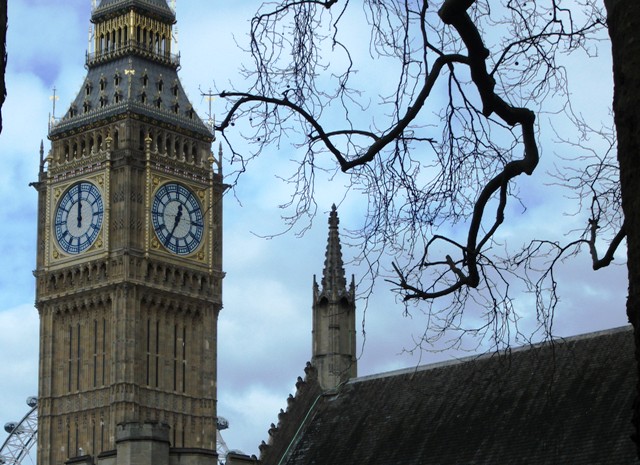
[This is an article from The Round Table Journal: The Commonwealth Journal of International Affairs. Opinion articles do not reflect the position of the Round Table editorial board.]
In an article in the London Daily Telegraph on Christmas Eve 2021, Conservative MP John Penrose argued that Britain’s overseas territories should be allowed to elect MPs to the House of Commons, as a step towards integration with the UK. The idea has a long pedigree. In 1652, slave-owner Thomas Modyford wanted Barbados planters to send two members to Cromwell’s parliament. In 1707, the year of the union of Scotland and England, eccentric historian John Oldmixon appealed to the precedent of the Portuguese Cortes, which admitted representatives from Goa. Great minds like Benjamin Franklin and Adam Smith thought that American MPs at Westminster might solve the Stamp Act controversy. Sadly, the cry of ‘no taxation without representation’ emphasised the first half of the slogan over the second. ‘Opposuit natura!’ cried Edmund Burke, objecting that the result of general elections would be impossibly delayed by the need to wait for returns from far-flung dependencies.
Enthusiasts replied by proposing fixed-term voting, an idea copied into the US constitution in 1787. Gibraltar was one of nineteen overseas seats that the radical Joseph Hume tried to add to the Reform Bill in 1831, ranging from the Isle of Man to Australia (to which he allocated one MP, a proposal that greatly amused the House of Commons). Equally bizarre was the campaign by Sir John Malcolm, former governor of Bombay (Mumbai), to give East India Company shareholders their own seat in the Commons. In 1849, as British North America moved towards self-government, the prime minister, Lord John Russell, favoured admitting Canadian MPs to Westminster to preserve the link. This was designed to outbid the likely alternative, annexation to the USA, which would have entitled Canadians to representation in Congress. Benjamin Disraeli similarly drew a parallel with the way Washington admitted non-voting delegates from its territories as a step towards their admission to full statehood in the Union. By contrast, few enthusiasts cited the precedent of Britain’s traditional foe, France, which briefly admitted its overseas territories to the National Assembly in 1848, but only permanently incorporated them from 1871. (Martinique today sends two senators and four deputies to Paris.)
In late Victorian times, the idea was overtaken by the grander movement for Imperial Federation, Joseph Chamberlain’s vision of a global Congress designed to shore up British world power. It was always a non-starter, not least because enthusiasts never decided whether to treat India as a partner or a dependency. As that dream faded, proposals for overseas representation at Westminster occasionally resurfaced. Some suggested that Newfoundlanders should be allocated ahandful of MPs when their bankrupt island surrendered its dominion status in 1933: they eventually joined Canada. In 1955, a round-table conference proposed to give three Westminster seats to Malta, as an alternative to independence. Churchill privately condemned the innovation, which he thought would ‘inflict lasting damage upon the character of the House of Commons’.
Overseas territories could even be the losers through representation at Westminster: a device designed to capture Parliament’s attention might also encourage Parliament’s intervention. In 1641, John Winthrop decided against sending an MP from Massachusetts (uninvited) to back his fellow Puritans in the Long Parliament: ‘if we should put ourselves under the protection of the parliament, we must then be subject to such laws as they should make’, and these ‘might prove very prejudicial to us’. What would be gained? Politicians are busy people. Everybody knows there are problems with St Helena’s costly airport. They will not be solved by the Honourable Member for the Mid-Atlantic haranguing empty green benches. Representation of tiny communities would simply create fresh anomalies: for instance, the Isle of Wight returns a single member, but has fifty times the Falklands’ population. Britain is now a multi-party state where elections cannot be guaranteed to produce majority governments. Let’s never forget the nightmare outcome to Theresa May’s 2017 dash to the polls, which left her dependent upon the Ulster Unionists. The overseas territories would gain nothing in public affection if they were used to prop up some weakened ministry, mocked by scornful critics for bribing Rockall and deferring to Dogger Bank.
The admission of overseas MPs to Westminster is a nice idea, an old idea and a bad idea. ‘No plan of a great public reform has ever been more thoroughly ventilated than this has by the discussions of a century’, wrote Colonial Office mandarin Herman Merivale in 1870. ‘The result … has been to bring more and more into light the insoluble nature of the difficulties which impede its adoption’. That verdict stands in 2022. Only one constituency outside Britain and Ireland has ever elected members to Westminster: the English enclave of Calais between 1536 and 1555. Let’s keep it that way.
Ged Martin is Emeritus Professor, University of Edinburgh, UK.



